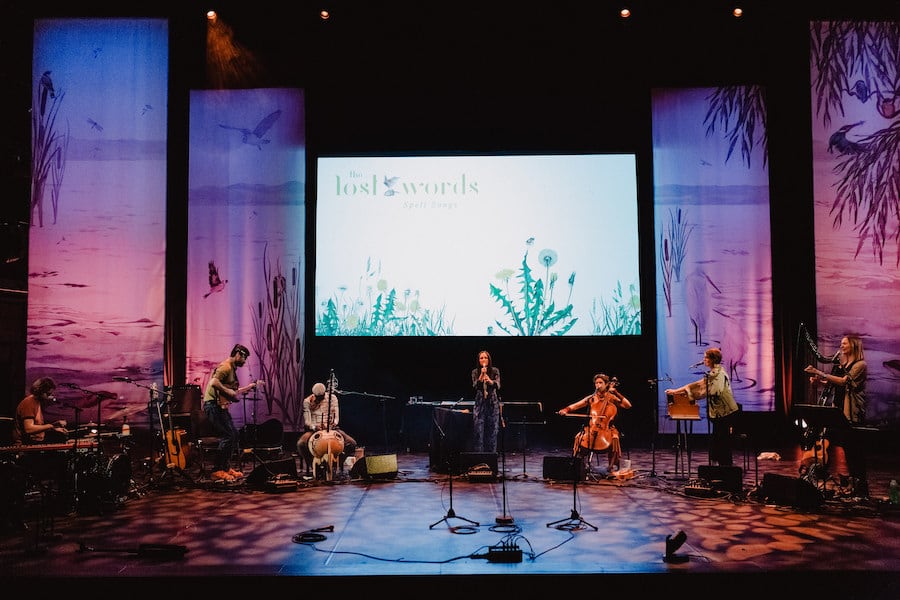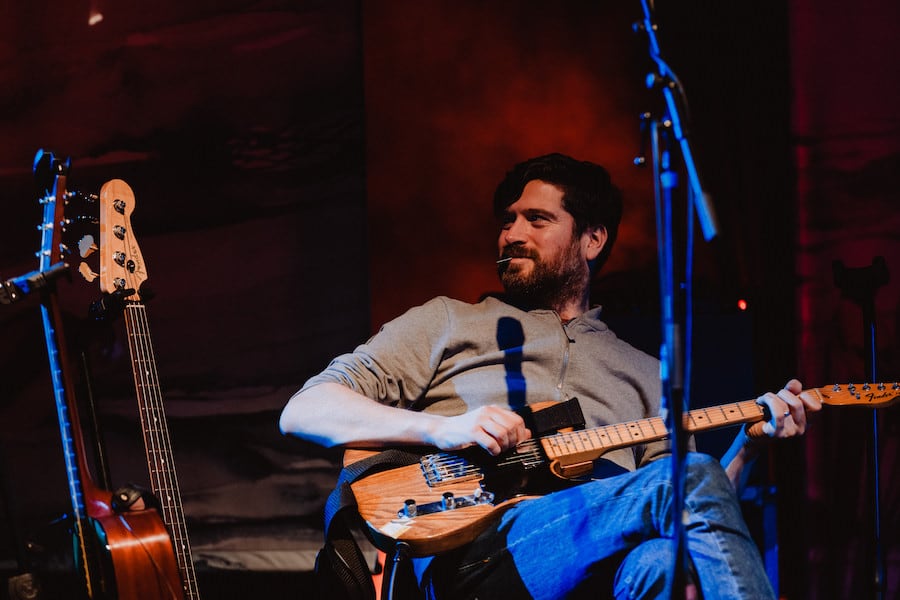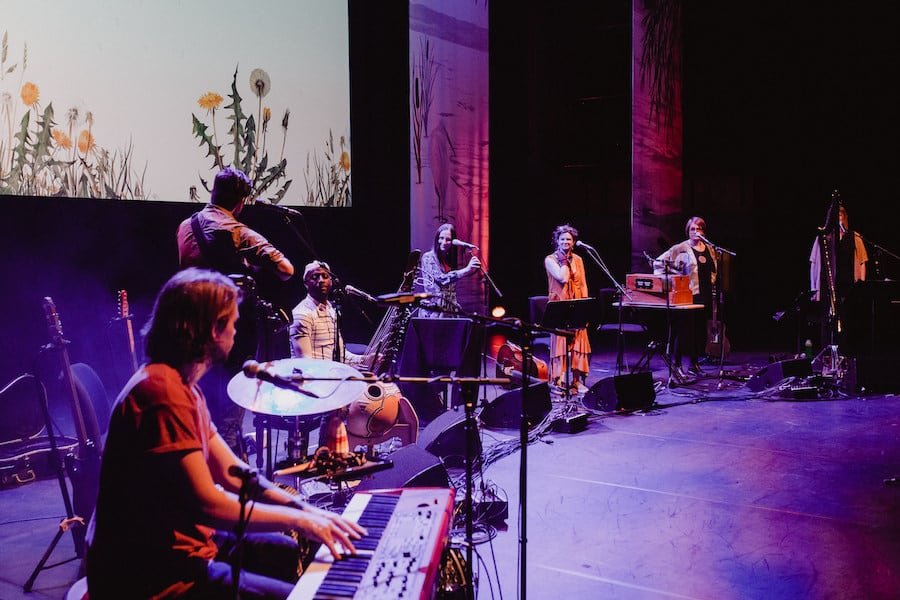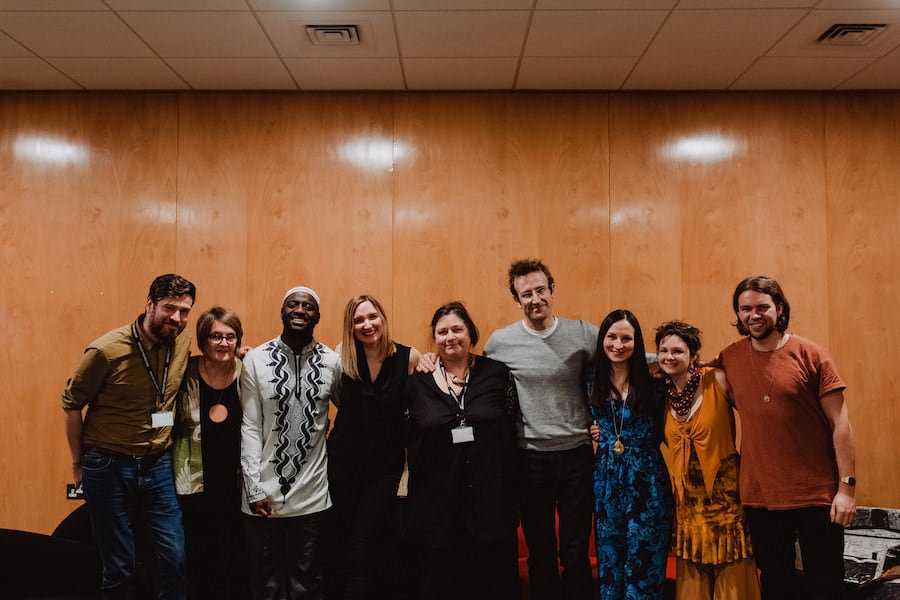“Once Upon a time, words began to vanish from the language of children,” begins The Lost Words, the best-selling book by Robert Macfarlane and Jackie Morris.
With Morris’ wild earthen illustrations and Macfarlane’s poetry ‘spells’ (inspired by Dylan Thomas, Spike Milligan and perhaps even a bit of Dr. Seuss) at the fore, The Lost Words centres on the concerning removal of everyday words such as acorn, bluebell, otter and raven from the Oxford Junior Dictionary. Since it’s release it has been recognized as a cultural phenomenon and has grown ‘to become a much broader protest at the loss of the natural world around us, as well as a celebration of the creatures and plants with which we share our lives.’
Thanks to grassroots campaigns every primary and special school in Scotland, half of England and a quarter of Wales, as well as select hospices will soon own a copy. Jackie’s artwork has now been reproduced in graffiti and across hospital wards. From Theatre productions to classical music, artists of all ages are now adding some of their own magic into the mix.
Enter composer, singer and author, Kerry Andrew. Andrew decided to musically interpret one of Jackie & Robert’s spells back in 2017. Jackie and Robert then chose to air her Wren Song at Hay Winter festival during a talk of theirs. Caroline Slough from Folk by the Oak happened to be in the audience and alongside her husband Adam they contacted the two authors with the idea of commissioning a collaborative song project based on the book. And so The Lost Words – Spell Songs was born.
A dream-team of award-winning musicians was quickly assembled. Those selected to join Macfarlane, Morris and Andrew for a residency in the Herefordshire countrywide were: Scottish singer-songwriter Karine Polwart, Senegalese kora master Seckou Keita, Gaelic singer Julie Fowlis, contemporary songwriter Kris Drever (Lau), multi-instrumentalist Jim Molyneux, harpist Rachel Newton (The Shee/The Furrow Collective) and cellist Beth Porter (The Bookshop Band/Eliza Carthy).
With twenty newly commissioned pieces under their belt and over half of those now recorded (with the album set for release on July 14th) the collective chose to cast them out into the world with a short live tour. We caught up with them at Queens Elizabeth Hall, Southbank Centre…
The soft impact of Acorn breaks the silence in the auditorium.
The spoken word adaptation has a distinct Scots lilt, with voices meeting in unison before Drever creeps into the Conker spell with his ringing lone electric. Met by cello and the warm sustain of Karine’s harmonium, it feels like the bright light of daybreak hitting the stage as we get our first glimpse of the ensemble in full effect. Keita as the cabinetmaker, Drever the king and Polwart replying as the engineer all shoot down Fowlis’ innocent inquiries, “conker cannot be made (…) only one thing can conjure conker – and that thing is a tree”
Heartwood a new spell recently penned by Macfarlane in response to the mass felling of Sheffield’s trees is next sung into life with Polwart’s tumbling lead melody at its core. From here the rippling ornamentation of Newton and Keita ring out, arpeggios and stressed harp plucks building to a tense bridge section, before returning once more to the songs easy refrain. The gentle feel of Seckou’s Senegalese kora playing seems to give these arrangements a slightly ethereal texture, adding to the already palpable conjury at play. Beth Porter, uke in hand, heads up Goldfinch a touching ode, partly inspired by the passing of Macfarlane’s Grandfather.
Kerry Andrew is sorely missed (due to illness) but her presence is felt strongly in her dedication to the owl. With the experimental eeriness of You Are Wolf’s KELD all over it, Newton sings lead and is joined in harmony by the band for a haunting chorus hook. Kris Drever then does a remarkable job of turning Macfarlane’s Dandelion spell into a touching acoustic standout on Scatterseed, the chorus closing with the affecting imagery, “fallen star of the football field.”
Scatterseed is shortly followed by another set highlight, Heron. “If you ever find a heron on the back of a donkey, it means the cow is missing” jokes Seckou before the song begins. Just like Soar his critically acclaimed album with Catrin Finch inspired by the migration of osprey, it’s a joyous listen with a stirring staggered harmony ascent on “now heron hauls himself into flight, steady wing beats through evening light” Unbroken eye contact between Seckou and Drever results in dazzling mirrored harmony lines on the acoustic and kora.
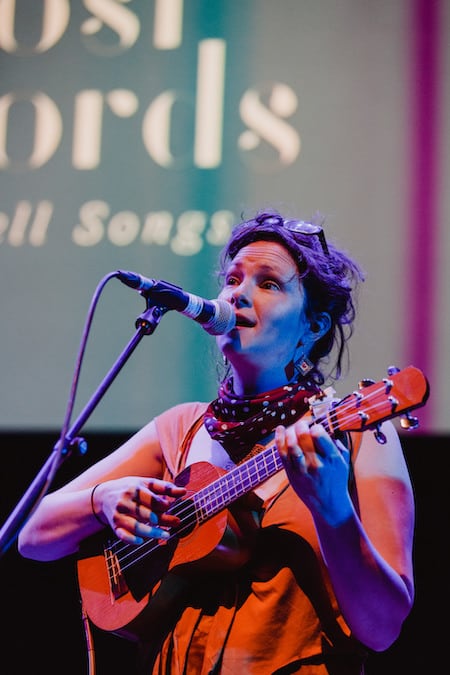
The septet then returns onstage and begin to form a roiling soundscape around Morris who has now joined them. She recites the Otter spell whilst painting two ‘silver-miners’ in motion using Japanese calligraphy ink and water. Her long-drawn brush strokes – reaching from nose tip to tail – form their arched backs, as the ink glimmers under the stage lights. As the musicians reach a crescendo it’s at this point in the evening that you really feel the confluence of music, visual art and poetry coming together strongest as a listener; ‘Otter magic’ to borrow Macfarlane’s recent pun.
After a passionate introduction regarding minority languages Keita and Fowlis duet in Mandinka and Gaelic on Kingfisher, before Polwart joins Fowlis on the stark Mountain hare, sounding as if it has deeper, more traditional folk roots recalling Sandy Denny’s The Quiet Joys of Brotherhood. With a warm tone reminiscent of James Vincent Mcmorrow, Jim Molyneux leads with the next spell, before Rachel Newton settles into the four-part harmony wonder of Willow.
Karine then goes on to mention the sense of space one feels when reading The Lost Words and highlights the importance of arts education. Tonight, the ensemble seems to champion the importance of these ideas simply through their songwriting and performance alone. They’re like a carefully crafted ecosystem onstage, with each band member instinctively aware of his or her place within the larger picture. Without ego, they listen and allow their friends and the arrangements the proper room and conditions to truly flourish. We interviewed Polwart and Morris back in January (keep an eye out for their replies in our upcoming Lost Words feature) where she expanded upon this:
“Some of us have greater facility with shaping words than others. Others are deft makers of soundscapes, rhythmic wizards, or conjurors of melody. In music, there are so many different ways to embody meaning. And part of the joy of crafting collaboratively in the moment is a sort of dancing into spaces where you can offer something that someone else can’t. Equally, it can take a willingness to step aside when someone is already occupying that space. To offer less than you could is a kind of generosity and confidence. And it seems we’re all quite accomplished at that.”
Written in four days and recorded in just three that’s a fair assessment! “This is what we should be teaching in schools,” stresses Morris, referring to their collaborative talents and conservation on a whole, “loss is the tune of our times” she continues. Jarring, as it may be to listen to it’s a truth we must now face. Macfarlane touched on ‘insectageddon’ and the current catastrophic population collapses during his Q&A. Perhaps vital responses like these are what we need to further raise awareness, give hope and inspire people to take action.
Looking out across the audience there are more than a few tearful faces as the ensemble concludes with the uplifting crystal keys of A Blessing Song, which comes on like an ornithologically inspired Joanna Newsom ballad set to the ecopoetry of Mary Oliver. It’s a heartening finale to an unforgettable evening. A touching reminder of what we have and what we stand to lose. “That which is not truly lost can be found again.”
“Look to the sky with care my love and speak the things you see. Let new names take root and thrive and grow. And even as you journey on past dying stars exploding, like the gilded one in flight, leave your little gifts of light. And in the dead of night my darling, find the gleaming eye of starling. And like the little aviator, sing your heart to all dark matter (…) and when every hope is gone, let the raven call you home” – A Blessing Song
The Spell Songs UK Tour Dates
MAY 29th WED – Hay Festival
JULY 14th SUN – Folk by the Oak (album release)
https://www.thelostwords.org/spell-songs/
Photo Credit: Elly Lucas

